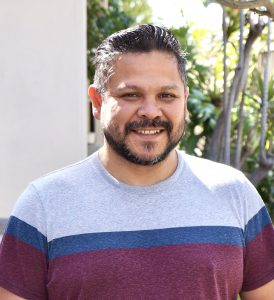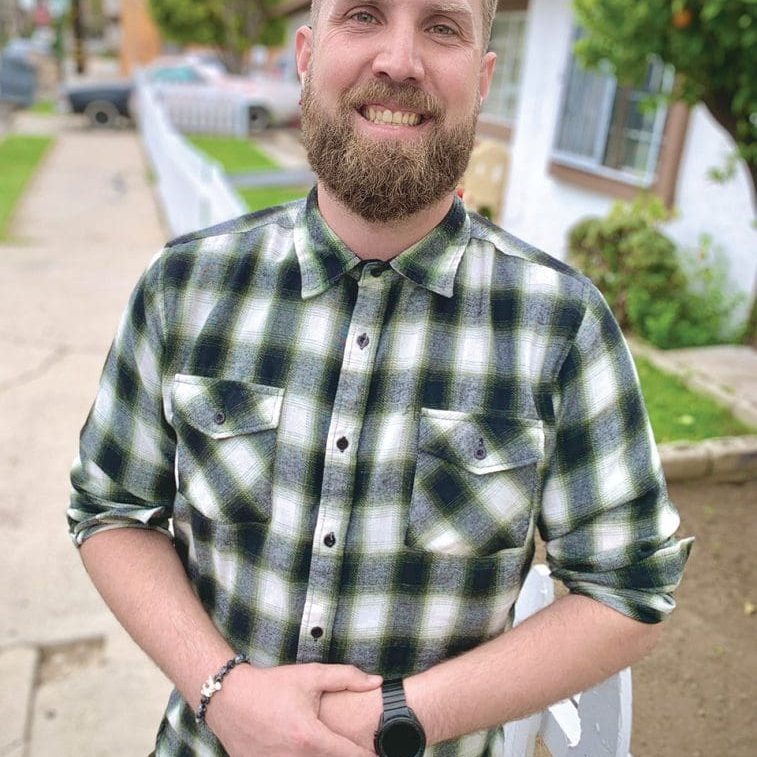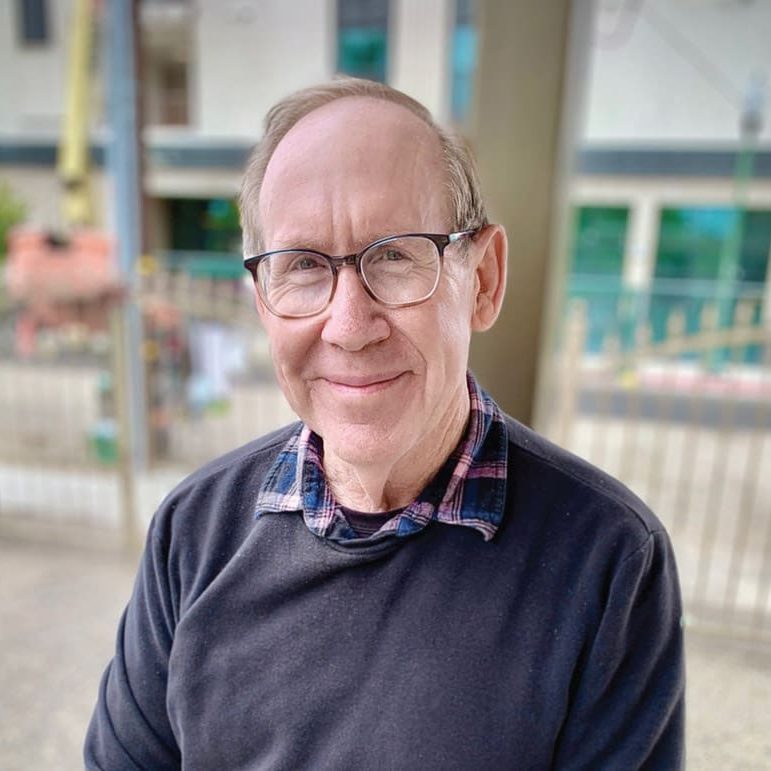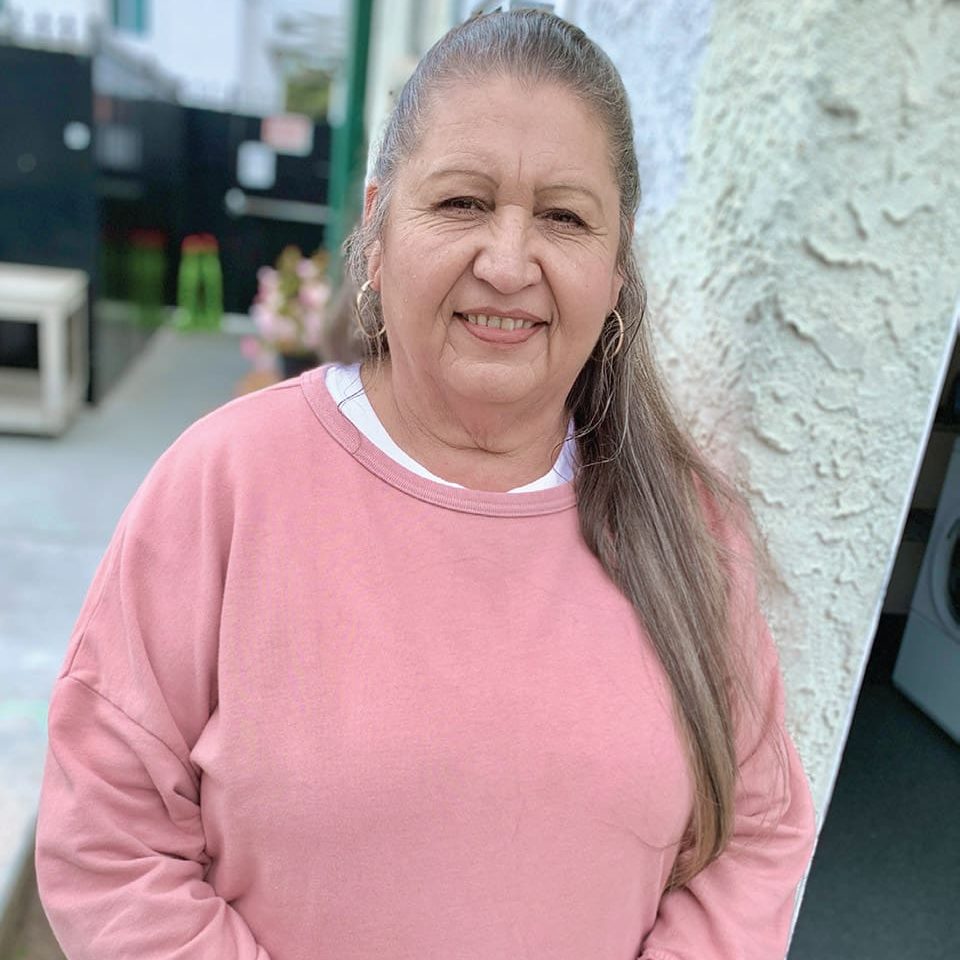Stories that Inspire.
Victories to Celebrate.
LIFE RECOVERY PROGRAM OFFERS VINNY, OTHERS, THE SUPPORT TO HEAL AND GROW

Vinny finished the Life Recovery Program and is now a Ministry Resident.
Vinny’s father was an alcoholic, and was abusive to him and his mother. When he was 10, his parents divorced. “We left him,” said Vinny, who lived in Port Hueneme. “So I grew up with a single mother raising three kids. My dad was in and out of the picture. He’d appear and disappear.”
When Vinny was 15, there was a knock at the apartment door. “We found out my dad had been living on the streets,” Vinny said. “He had been found sitting on a bench, dying of a brain hemorrhage. He only survived another 24 hours.”
It pains Vinny to admit that he repeated this cycle. When he and his wife had their first child, Vinny was 25. “I wanted to be the greatest dad in the world because I didn’t have one,” he said. “I became the mirror image of my own father. I’ve been in and out of my son’s life. I disappeared, went out on the streets, and became homeless.”
Vinny had started smoking cigarettes at 10 and drinking at 12. He moved on to hard drugs at 15. “It’s all a blur after that. It was just a life of drugs and drinking and partying until I was 25. Having our son slowed me down a bit, but it didn’t stop me.”
Vinny and his wife divorced after 10 years of marriage and Vinny entered the Mission’s Life Recovery Program in 2017. “I realized that I couldn’t do it all by myself,” he said. “I needed a community, church, people around me to push me forward and not let me roll back. You really need to look for and use every single outlet you can to continue your sobriety.
“I was there for 15 months. It got me thinking: ‘What am I doing out (on the streets)?’ We need to understand who we are. We aren’t worthless. We aren’t just drug addicts. You can get that understanding here.”
Marc Simon, the Mission’s Orientation Chaplain, said those considerations are normal—and difficult. “One of the most challenging things to a new resident is being asked to consider the world, and themselves, from a perspective that is different from the one they’ve known all their lives,” he said. “Embracing a new way of seeing and thinking—even when it’s what you want deep down inside—can be extremely difficult.”
Vinny graduated the program, met his new wife, and the couple has two children now, 2 and 4. But two years ago, Vinny relapsed. After three months on the streets, he returned to the Mission.
“The camaraderie among the brothers, being all here together, it’s awesome. People here love on outcasts, on those who have been rejected by society. When people share the word of God with you, you realize that you are wanted.”
Chaplain Marc said Vinny’s assessment is typical. “The most helpful facet of the program is the sense of community, and even family, shared by most of our residents,” he said. “The sense of being cared about and supported is priceless in the journey of recovery and personal change.”
Also, the having hope for the first time is life-changing. “Not wishful thinking or fantasy, but genuine hope,” he said. “The kind of hope that is rooted in faith, hard work, and commitment. The kind that endures and is not easily lost when things get difficult, because they often do.”
\Vinny, now 42, sees his young children every other day, and is praying on God’s timing on when his relationship with his 17-year-old son will be restored. He has a strong relationship with God, and hopes to become employed by the Mission.
Chaplain Marc said witnessing these transformations is a blessing. “There are few things more gratifying than seeing a human soul transformed right in front of you, and knowing that God used you to play some minor role in the transforming process. While it is admittedly heartbreaking thinking about those who don’t make it or succeed, the joy of witnessing those that do is priceless.”
Be Inspired
Be Transformed
Stay connected with the good work the Mission is doing, and learn more about the people we help.



